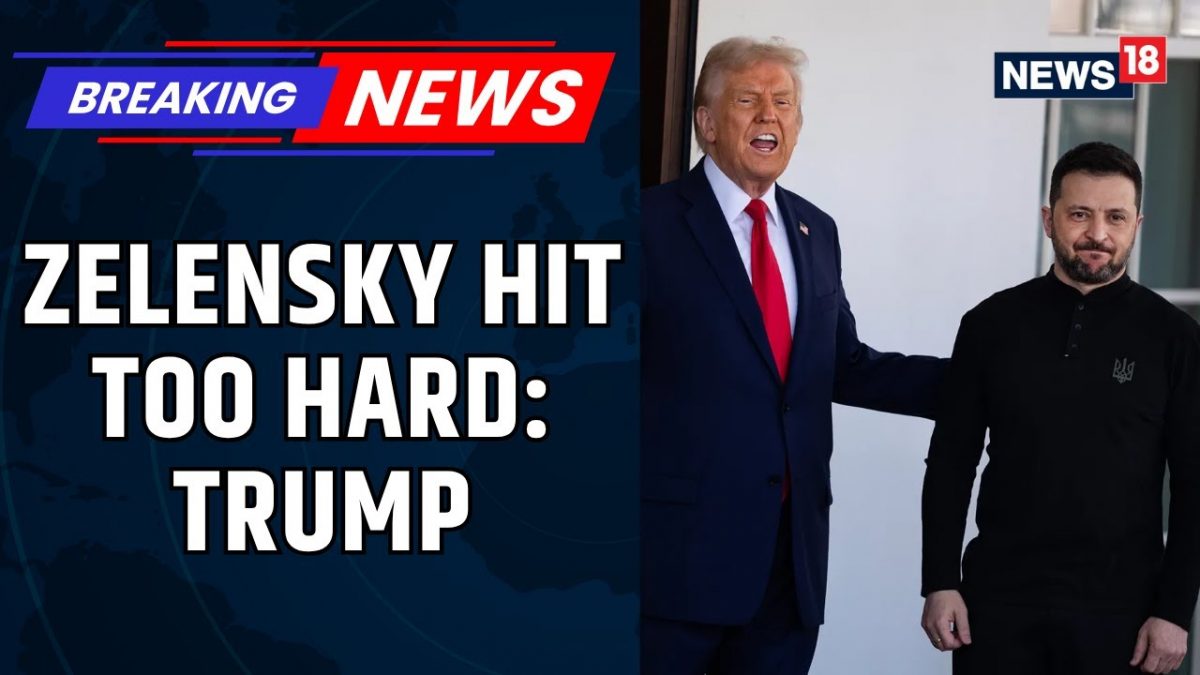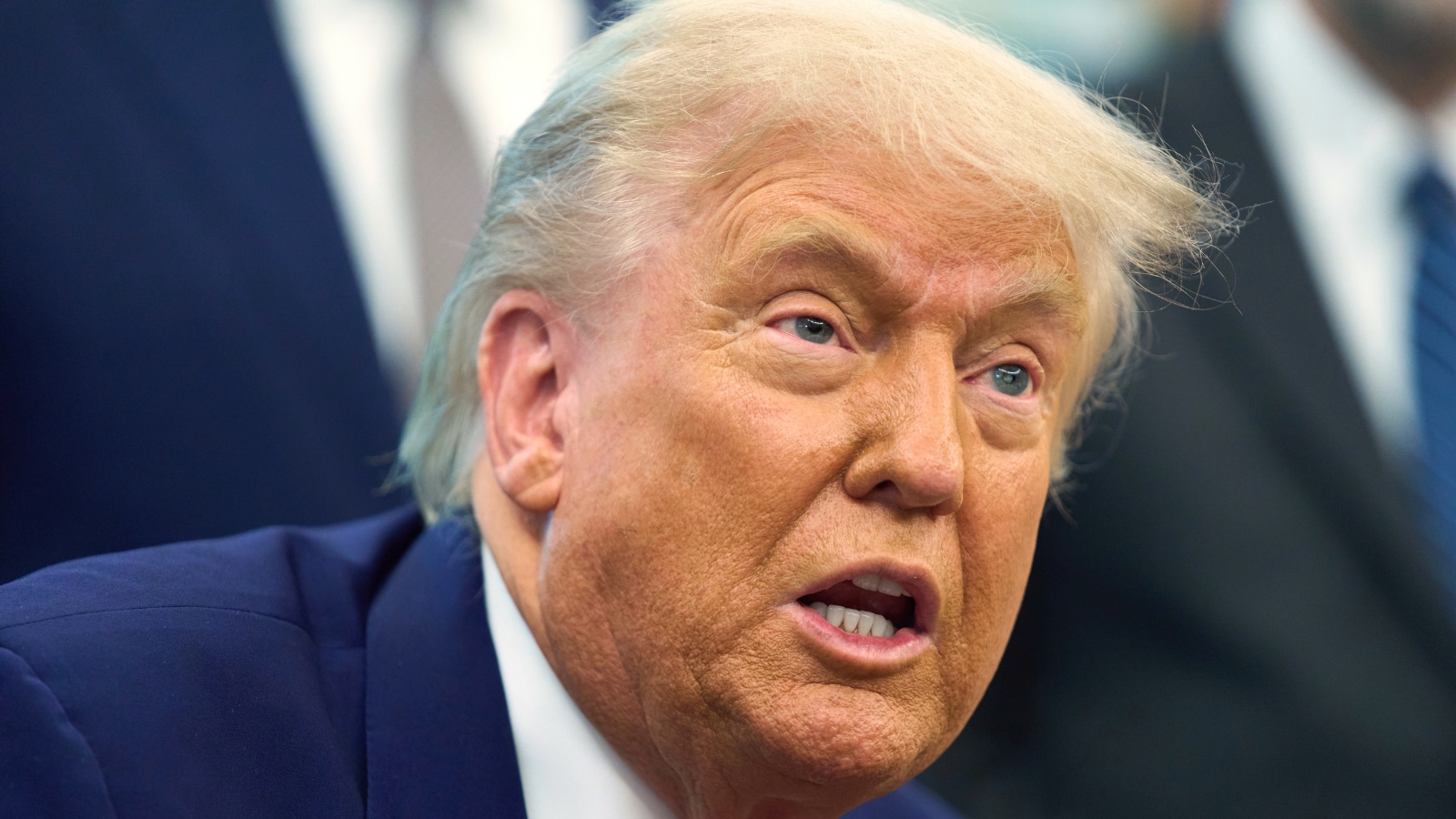ARTICLE AD BOX
Last Updated:July 04, 2025, 22:41 IST
He added that the Dalai Lama himself has expressed the intention to live for another 20 years and would determine the time and place of his reincarnation—not the Chinese government

Sikyong also asked that when China talks about the Dalai Lama breaking from traditions, what was the original tradition it was talking about? Pic: Nivedita Singh/News18
Penpa Tsering, president of the Tibetan Government-in-Exile, has dismissed speculation over the successor to the 14th Dalai Lama, saying it’s premature to discuss the issue while he is in good health and active spiritual leadership.
Speaking to News18, he added that the Dalai Lama himself has expressed the intention to live for another 20 years and would determine the time and place of his reincarnation—not the Chinese government.
“Some are talking as if his holiness is going to die tomorrow or the day after or next year or something. He (the Dalai Lama) says he’s going to live for another 20 years. So it’s too early for us who believe in his holiness," Tsering, also called the Sikyong of the Central Tibetan Administration, told News18 at the Dalai Lama Temple in Dharamshala.
Tsering added that the process of identifying a successor traditionally begins only shortly before the Dalai Lama’s passing—not decades in advance.
“So we have to understand the tradition. I think a lot of people are expecting that his holiness might appoint somebody, or he might say that I’m going to be born in this place at that time. It doesn’t happen like that," he explained to News18.
The Dalai Lama will celebrate his 90th birthday on July 6 in Dharamshala in Himachal Pradesh, where he has been camping in exile since China thwarted an uprising in the Tibetan capital Lhasa in 1959.
Traditionally, Tibetan Buddhists believe that the Dalai Lama is reincarnated after his death. The search for a new Dalai Lama only starts after the death of the current leader.
The confusion over his successor was created as back in 2011, Tenzin Gyatso, the current Dalai Lama since 1940, had said that he would evaluate if the institution of the Dalai Lama should continue and, if so, how a successor would be identified when he would turn 90, which is on July 6.
“How can China dictate to a Lama where he should be born?"
Earlier this week, the Dalai Lama announced that the responsibility for identifying his successor will rest exclusively with the India-based Gaden Phodrang Trust, his office.
However, while India welcomed the decision, China rejected the idea, saying selection must go through a process approved by Beijing.
Reacting to the development, Tsering said, “When you don’t have truth on your side, then you speak loudly. So the reaction from China is understandable. They always do it…" he said.
He also reacted to the Chinese government’s claim it they will look for “his holiness’s reincarnation within China’s boundaries".
“His holiness is going to be reborn where he wants to be reborn. He will decide. How can the Chinese government dictate to a Lama, a spiritual being, where he or she should be born? So it’s completely absurd. It doesn’t go with reason, logic," he said.
“China should study Tibetan Buddhism"
He further said that the Dalai Lama says China should study Tibetan Buddhism and believe in the concept of life after death.
“Then maybe they should look for Mao Zedong’s reincarnation because he’s no more with us. If they are serious about reincarnation, why go for his holiness? Look for their own leadership’s reincarnation," he added.
Golden Urn: Historical Context
Sikyong also asked that when China talks about the Dalai Lama breaking from traditions, what was the original tradition it was talking about?
“When they talk about breaking from traditions, I think they are referring to the Golden Urn, introduced in 1793 when there was some influence from the Qing over the Tibetan Plateau. But after that, they themselves went through what they call 100 years of humiliation. So before 1793, there were eight Dalai Lamas already chosen, not through the Golden Urn," he said.
Sikyong counters that the introduction of the Golden Urn itself is “an interference from the Qing" over the Tibetans at that time.
He also explained that even after its introduction, the Golden Urn was hardly used by the Tibetans, “because Tibetans don’t trust in that. It’s not the traditional matter".

Nivedita Singh is a data journalist and covers the Election Commission, Indian Railways and Ministry of Road Transport and Highways. She has nearly seven years of experience in the news media. She tweets @nived...Read More
Nivedita Singh is a data journalist and covers the Election Commission, Indian Railways and Ministry of Road Transport and Highways. She has nearly seven years of experience in the news media. She tweets @nived...
Read More
- Location :
Dharmsala (Dharamshala), India, India
- First Published:
News world Dalai Lama To Decide On Rebirth, Not China: President Of Tibetan Govt-In-Exile To News18



.png)
.png)
.png)
















 3 days ago
8
3 days ago
8









 English (US) ·
English (US) ·